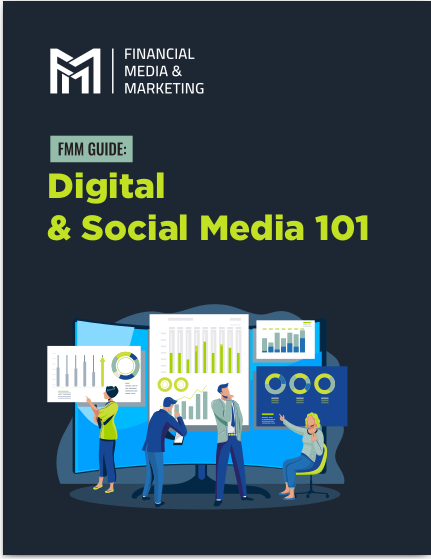Key Takeaways
-
Failing to optimize your SEO strategy can cost you high-value leads, limiting your business growth.
-
Simple yet effective tweaks—like content targeting, keyword strategies, and website optimization—can improve your visibility and attract more potential clients.
Why SEO Is the Missing Link in Your Lead Generation Strategy
If you’re relying on outdated marketing methods and ignoring SEO, you’re leaving money on the table. Search engine optimization isn’t just for tech experts—it’s a crucial tool that can put your business in front of potential clients actively searching for financial advice. In 2025, competition among financial advisors is fiercer than ever, and those who fail to adapt risk losing clients to more visible competitors.
Understanding How SEO Impacts Your Business
SEO isn’t just about ranking high on Google—it’s about making sure that when potential clients look for financial guidance, your website is the first thing they see. A strong SEO strategy enhances credibility, boosts engagement, and increases conversions. But how does it work?
Search Intent Matters More Than Ever
Not all website visitors are the same. Some are just browsing, while others are ready to take action. Understanding search intent helps you align your content with what users actually need. There are three main types of search intent:
-
Informational: Users looking for general financial advice.
-
Navigational: Users searching for a specific financial advisor or company.
-
Transactional: Users ready to hire a financial advisor.
Your content should cater to all three types, ensuring you attract leads at every stage of their decision-making process.
Google’s 2025 Algorithm Changes: What You Need to Know
Search engines constantly evolve, and Google’s 2025 algorithm update places even more emphasis on:
-
User experience (UX): Sites that load slowly or have poor mobile usability will rank lower.
-
Content relevance: Generic content stuffed with keywords won’t work anymore. Your content must provide real value.
-
E-E-A-T (Experience, Expertise, Authoritativeness, Trustworthiness): Google prioritizes credible sources, making it essential for financial advisors to showcase their expertise.
Optimizing Your Website for Better SEO Results
A well-optimized website isn’t just about ranking—it’s about converting visitors into clients. Here’s how you can improve yours.
Speed Up Your Website for Faster Load Times
Page speed is a major ranking factor. If your site takes more than three seconds to load, you’re losing potential clients. Use tools like Google PageSpeed Insights to identify and fix issues slowing your site down.
Mobile Optimization Is No Longer Optional
More than 60% of users search for financial advice on their phones. If your website isn’t mobile-friendly, you’re pushing away leads. Ensure your website has:
-
A responsive design that adapts to different devices.
-
Large, readable fonts.
-
Clickable buttons that don’t frustrate users.
Improve Site Structure for Easy Navigation
A confusing website structure can hurt your rankings and frustrate visitors. Make sure your website has:
-
A clear, logical menu.
-
Internal links that guide users to relevant pages.
-
A well-organized blog section with categorized articles.
Keyword Strategies That Work in 2025
You can’t just throw keywords into your content and hope for the best. Google has gotten smarter, and so should you.
Focus on Long-Tail Keywords
Long-tail keywords (phrases with three or more words) are highly specific and attract users closer to making a decision. Instead of targeting “financial advisor,” use “best financial advisor for retirement planning.” These keywords drive higher conversion rates.
Local SEO: Dominate Your Area
If you serve a specific location, local SEO is a must. Make sure to:
-
Claim your Google Business Profile.
-
Use location-based keywords like “certified financial planner in [city]” throughout your site.
-
Get listed in online directories.
Content Marketing: The Secret to Higher Rankings
SEO and content marketing go hand in hand. Without quality content, your rankings will suffer.
Blogging: The Backbone of SEO Success
Regular blog posts establish you as an authority in your field. But in 2025, blogging isn’t just about frequency—it’s about value. Your blogs should:
-
Answer specific client questions.
-
Be structured for easy readability (short paragraphs, bullet points, subheadings).
-
Include authoritative sources (without unnecessary outbound links).
Video Content Is the Future
Videos now dominate search results, and financial advisors who use video content see higher engagement rates. Try adding:
-
Quick explainer videos on key financial topics.
-
FAQ videos answering common client questions.
-
Client success stories (without revealing confidential details).
Keep Content Fresh and Updated
Google prioritizes updated content. Regularly refresh old blog posts and pages with:
-
New data and trends.
-
Revised recommendations.
-
More engaging formatting.
Link Building: Strengthening Your Online Authority
Backlinks (links from other sites to yours) signal to Google that your site is trustworthy. Here’s how to get high-quality backlinks:
Get Featured on Industry Websites
Reach out to financial news websites and offer to write guest articles. This builds authority and improves rankings.
Use Internal Links
Link to relevant articles within your own website to help users navigate and improve SEO rankings.
Leverage Social Media for More Visibility
Social signals (shares, likes, and comments) indirectly impact SEO. Post regularly on LinkedIn and other platforms to drive traffic to your site.
Why Ignoring SEO Will Cost You Clients
If you’re not optimizing for SEO, your competitors are. Every day, potential clients search for financial advisors, and if you’re not visible, you’re losing business. A weak SEO strategy means:
-
Fewer inquiries from potential clients.
-
Reduced credibility in your industry.
-
Higher dependency on paid advertising (which can be costly).
How to Get Started with SEO Today
SEO doesn’t have to be complicated. Start by:
-
Auditing your website for technical issues.
-
Updating your content to align with 2025 SEO trends.
-
Implementing a strong keyword strategy.
-
Enhancing user experience through speed and mobile optimization.
-
Leveraging backlinks and social media to improve rankings.
Stay Ahead with a Strong SEO Plan
SEO isn’t just a trend—it’s the foundation of a thriving financial advisory business. By making strategic improvements now, you’ll position yourself for long-term success. If you’re ready to bring in more qualified leads, start optimizing today.










